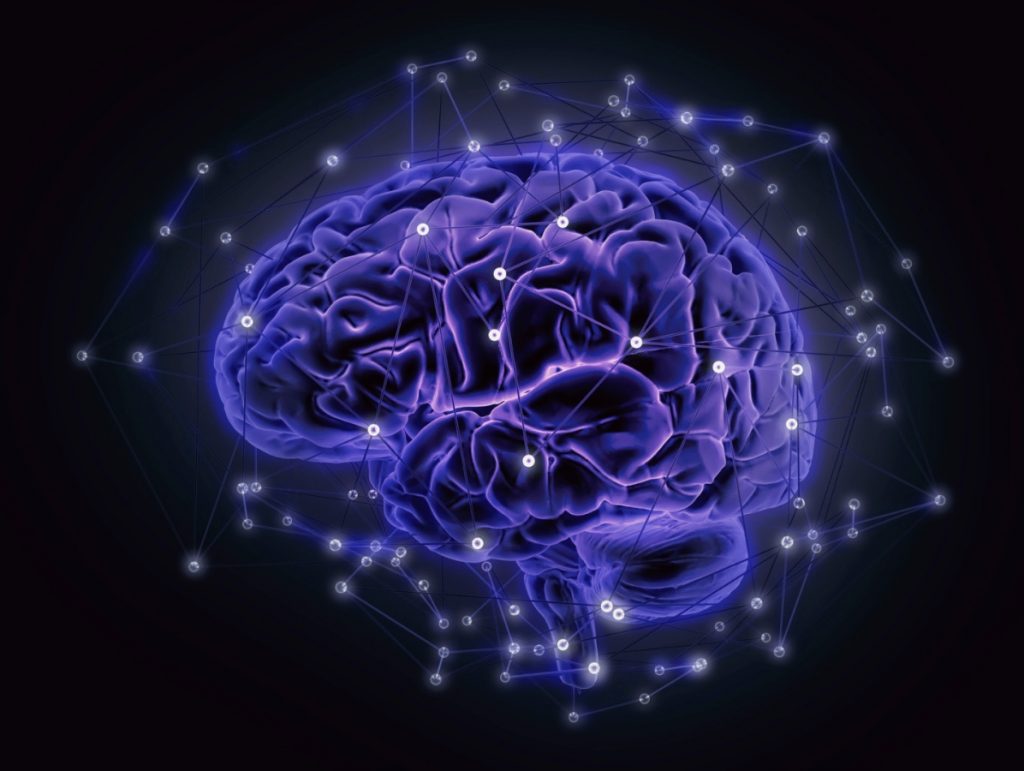Procrastination may feel like laziness but it’s actually a self-defense mechanism that can be explained through neuroscience. How our brains are wired has a lot to do with why we procrastinate.
The Neuroscience of Procrastination
Two brain regions, the limbic system and the prefrontal cortex, play an important role in procrastination. The limbic system is your brain’s oldest and most dominant part. It is involved in actions that have to do with survival, such as:
- Feeding our children
- Fight-or-flight responses
- Reproduction

Whereas, our prefrontal cortex is newer and less developed. It is involved in complex actions like decision-making, reasoning, and impulse control.
Oftentimes when we procrastinate our limbic system is winning over our prefrontal cortex. After all, our limbic system is much older and stronger than our prefrontal cortex.
Another reason we procrastinate is because of how our brains have been wired over the years. Voluntarily delaying a task leads to instant gratification and a release of dopamine, the hormone that makes us happy. Over time our brains begin to associate delaying tasks with a dopamine release. We procrastinate because it gives us happiness in the moment instead of achieving a big dopamine rush once we complete the task.
We also procrastinate for the rush of adrenaline we get from having to complete a task at the last minute. The stress of an impending deadline brings about a release of adrenaline and makes us excited.
How to Stop Procrastinating
Fortunately, eliminating procrastination is within your control. A few tweaks here and there in our daily routine can reduce the likelihood of putting things off.
Break impossible projects down into small baby steps
The thought of tackling a big project itself is daunting. Breaking down projects into smaller action items makes us more likely to actually do them. Once your task has been broken down, start off by taking on the most dreaded action item first. It’s much easier to complete a bigger task when it’s broken down into smaller chunks.
Delegating small tasks to others, or asking for help can also reduce procrastinating behavior because there are now more shoulders to carry our burden.
Take on the task for 10 minutes only
If you’re putting off something like organizing your kitchen or working on homework, tell yourself you’ll do it for only 10 minutes. Set a timer on your phone and then begin your task. Oftentimes you will get really involved and feel the momentum by the 10-minute mark and will continue working even after the time is up.
Even the most daunting of tasks can be completed if we just convince ourselves we’re only doing it for 10 minutes.
Re-frame the actions and little steps as wins
Reframing the action makes us more likely to tackle the task instead of delaying it. Instead of thinking about how you have to work for four hours straight to get a project done, reframe your thinking. You could say, “Once I finish this project in four hours, I get to enjoy the rest of my day.”
You could reframe the task as a challenge as well. Instead of thinking about how difficult and tedious the project is, take it as a challenge. Think “I wonder if I can complete this task in half the time and with better results than I’m anticipating.”
When we feel like we have to do something, we are externally motivated. It’s hard to start taking action right away when we’re relying on external motivation. Reframing your task allows you to channel internal motivation.
As you check things off your to-do list, celebrate all you’ve done. It will get you more motivated to continue.

Find the right environment to work in
Distractions can really hamper progress. Ensuring that you’re in a distraction-free work area helps you stay on task. If you’re working on the computer, close off other tabs, and turn your phone to “do not disturb”. Even minor distractions make us lose focus.
Avoid multitasking as well, Our brains can only focus on one task at a time. The more distracted you are by other tasks, the less efficient you will be.
Being in a calm environment can boost productivity. Being in a room that is well-lit, has a comfortable temperature, and is quiet can allow you to stay focused and get more done. Having greenery around you can also boost productivity.
Take breaks
Research has shown that taking breaks in between tasks allows us to be more productive than if we attempt to work away for hours at the end. This is because when we take a break, our brain revisits the work we were doing. If we were struggling with some aspect of it, our brain reviews it during a break. When we return to work, we’re more refreshed than before.
Use little dopamine boosts (e.g. exercise, sun)
The reason we procrastinate is that we get a dopamine boost from doing so. An alternative to tackling this problem is to take on the task and conclude with an activity that gives a dopamine boost. For example, you can reward yourself with a healthy snack, go for a walk, or sit in the sun after the work is finished.
Including actions that naturally release dopamine will give you pleasure and satisfaction in getting the task done instead of putting it off.

Have others hold you accountable
We’re more likely to complete a task if we have pressure from others like family or friends. Sometimes people will let their friends know they’re going on a diet so their friends can hold them accountable when they’re about to falter. Similarly, letting others know you’re about to do something will force you to take action due to positive pressure from others.
Heal past traumas
If you find yourself in a cycle of procrastination where you just can’t get yourself to do something important like eat healthily or go to sleep on time, it could be a form of self-sabotage. Self-sabotage can result from childhood trauma that is unhealed and is rearing its head by preventing you from achieving your goals and living a better life.
Past trauma can become the mental dialogue that prevents us from doing something that we know will bring a positive change in our life. It’s best to address your traumas so you can rid yourself of the trauma that’s holding you back and causing cyclical procrastination. It’s difficult to deal with and resolve trauma on your own.
Use nootropics that boost brain energy and dopamine
Nootropics like Dopa Drops and Apex can help us with the motivation and focus we need to take action and not procrastinate.
Dopa Drops increase vitamin B levels and dopamine precursors in the body allowing the body to be more sensitive to the dopamine already present. It also allows the body to release dopamine over a longer period. An increase in dopamine keeps us energized and motivated. Dopa Drops give us the boost we need to tackle an annoying task.
Apex allows you to stay in a peak mental state so that you can continue to stay focused on the task longer. Apex increases mental stamina and focus, enhances neurogenesis, and allows us to stay positive and optimistic.
References:
- Daum K. This Is Why You Procrastinate, and Here’s What to Do About It. Inc.com. Published 2019. Accessed February 7, 2023. https://www.inc.com/kevin-daum/this-is-why-you-procrastinate-heres-what-to-do-about-it.html
- Le Cunff AL. Why we wait: the neuroscience of procrastination. Ness Labs. Published July 26, 2019. Accessed February 7, 2023. https://nesslabs.com/neuroscience-of-procrastination
- Beyond time management: Why we really procrastinate and how to finally stop. Ambition & Balance. Published March 7, 2016. Accessed February 7, 2023. https://blog.doist.com/overcome-procrastination/
- Cherry K. How multitasking affects productivity and brain health. Verywell Mind. Published April 6, 2010. Accessed February 7, 2023. https://www.verywellmind.com/multitasking-2795003
- Vimalanathan K, Ramesh Babu T. The effect of indoor office environment on the work performance, health and well-being of office workers. J Environ Health Sci Eng. 2014;12(1):113. doi:10.1186/s40201-014-0113-7
- Gu J, Liu H, Lu H. Can even a small amount of greenery be helpful in reducing stress? A systematic review. Int J Environ Res Public Health. 2022;19(16):9778. doi:10.3390/ijerph19169778
- Study shows how taking short breaks may help our brains learn new skills. National Institutes of Health (NIH). Published June 8, 2021. Accessed February 7, 2023. https://www.nih.gov/news-events/news-releases/study-shows-how-taking-short-breaks-may-help-our-brains-learn-new-skills
- The Biology of traumaTM with Dr. Aimie: 08: Can stored trauma in the body cause self-sabotage? With Dr. Arielle Schwartz, part 1 on. Apple Podcasts. Accessed February 7, 2023. https://podcasts.apple.com/us/podcast/can-stored-trauma-in-the-body-cause-self-sabotage-with/id1658593616?i=1000595588519
